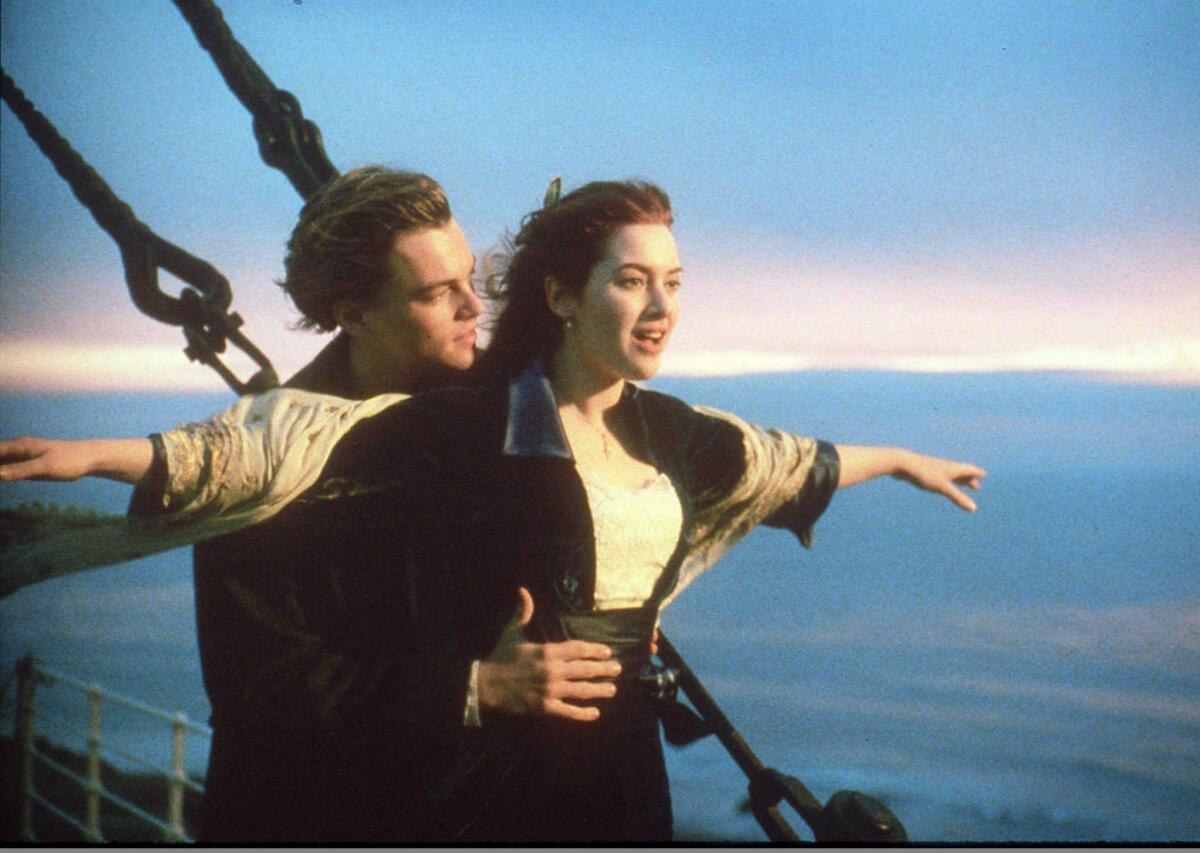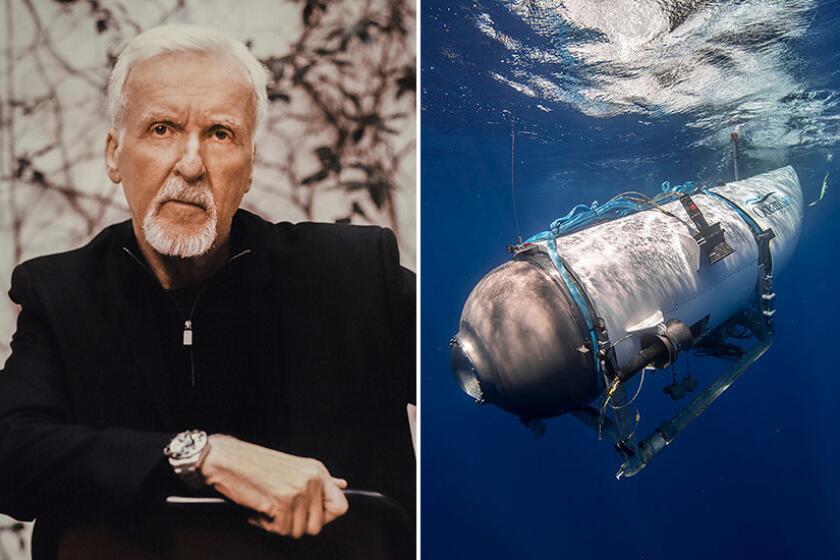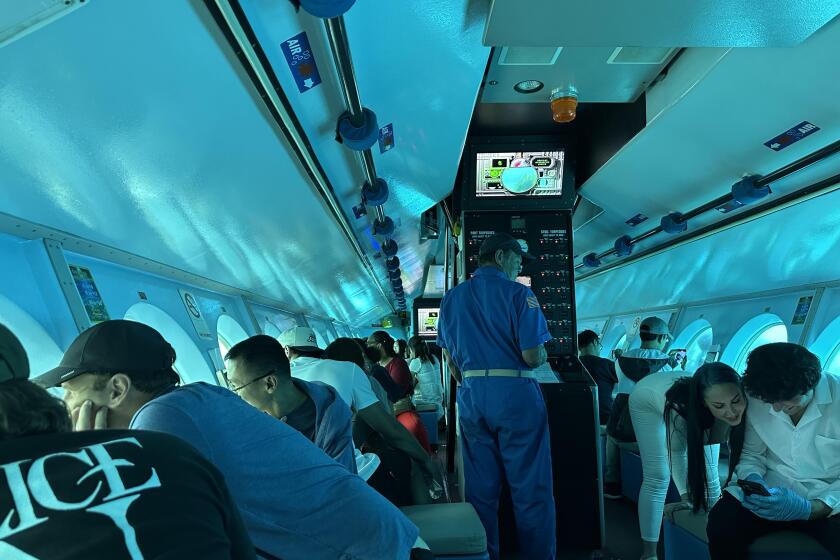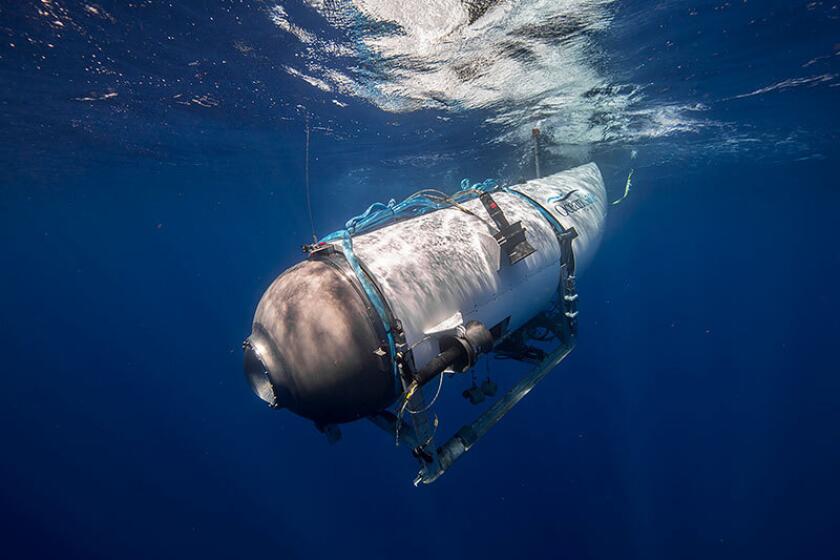Netflix slammed for streaming ‘Titanic’ ‘too soon’ after submersible disaster

- Share via
James Cameron‘s “Titanic” is set to return to Netflix on July 1 — a little over a week after it was confirmed that five people had died aboard a submersible diving to the site of the Titanic shipwreck. Some are calling the entertainment company “rude and insensitive” for streaming the title so soon after the disaster.
Though critics have accused the streaming giant of acquiring the movie after the Titan submersible imploded — in an alleged effort to “capitalize” on the situation — The Times has confirmed that the deal to bring “Titanic” back to Netflix in July was struck several months ago.
The 1997 blockbuster starring Leonardo DiCaprio and Kate Winslet will be available to watch on the platform in the United States and Canada starting Saturday.
‘Titanic’ director James Cameron says that OceanGate’s Titan submersible deaths are ‘impossible to process’ and that passengers were likely warned just before implosion.
When news of the film’s imminent return to Netflix surfaced over the weekend, many social media users were quick to denounce the streamer’s “bad timing” and “lack of compassion.” Others made jokes about the grim coincidence — in line with how the internet has reacted to the tragedy as a whole.
“I love Titanic but I kind of think it’s rude and insensitive that they’re doing adding it back on Netflix NOW,” one person tweeted. “People literally died on the submarine a few days ago??? But they don’t care they just know they’ll get lots of streams/$$$. Sad.”
“And the award for unbelievably insensitive timing goes to @netflix,” another person echoed.
“We are still grieving recent loss,” a third person wrote.
“Read the room for once, capitalism,” tweeted another.
Netflix declined to comment.
OceanGate co-founder Guillermo Söhnlein defended his former company and the Titan submersible against James Cameron’s criticism of the sub’s design.
Last week, officials reported that all five passengers aboard the Titan submersible — Stockton Rush, Hamish Harding, Paul-Henri Nargeolet, Shahzada Dawood and his son, Suleman Dawood — had died after underwater robots found seafloor debris “consistent with a catastrophic implosion.”
The passengers — including the chief executive of the company behind the voyage, OceanGate — were on a tourist expedition to explore the wreckage of the Titanic more than two miles underwater.
In a recent interview with ABC News, “Titanic” director Cameron speculated that sensors inside the submersible likely warned the travelers that it was going to implode. Cameron is a longtime member of the diving community and familiar with submarines equipped to travel deep underwater.
During an underwater tour of Catalina Island, passengers aboard the Nautilus couldn’t avoid thinking about the loss of the Titan submersible — but that didn’t stop them from boarding.
“People in the community were very concerned about this sub,” the filmmaker told ABC.
“A number of the top players in the deep submergence engineering community even wrote letters to the company, saying that what they were doing was too experimental to carry passengers and that it needed to be certified.”
Cameron went so far as to compare the Titan disaster to the sinking of the Titanic, “where the captain was repeatedly warned about ice ahead of his ship,” but chose to keep going “at full speed.”
The five people aboard a submersible that vanished on a trip to explore the Titanic wreckage have died after a catastrophic implosion, the U.S. Coast Guard says.
“For us, it’s a very similar tragedy where warnings went unheeded,” Cameron continued.
“To take place at the same exact site with all the diving that’s going on all around the world, I think it’s just astonishing. It’s really quite surreal.”
In response to Cameron’s remarks, OceanGate co-founder Guillermo Söhnlein defended the submersible’s construction and “rigorous test program.”
“I was involved in the early phases of the overall development program during our predecessor subs to Titan,” Söhnlein told Times Radio, “and I know from firsthand experience that we were extremely committed to safety, and risk mitigation was a key part of the company culture.”
More to Read
Only good movies
Get the Indie Focus newsletter, Mark Olsen's weekly guide to the world of cinema.
You may occasionally receive promotional content from the Los Angeles Times.













